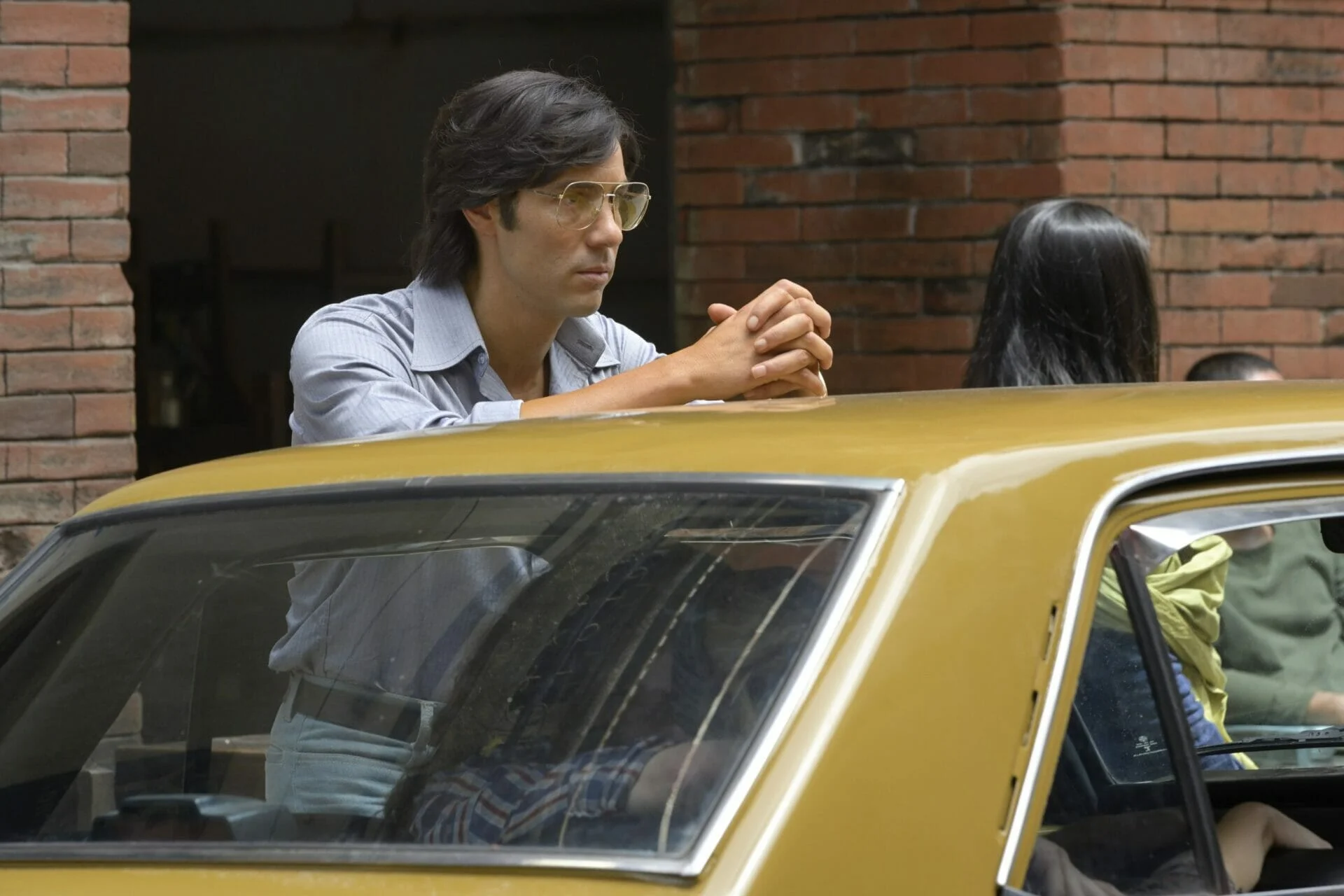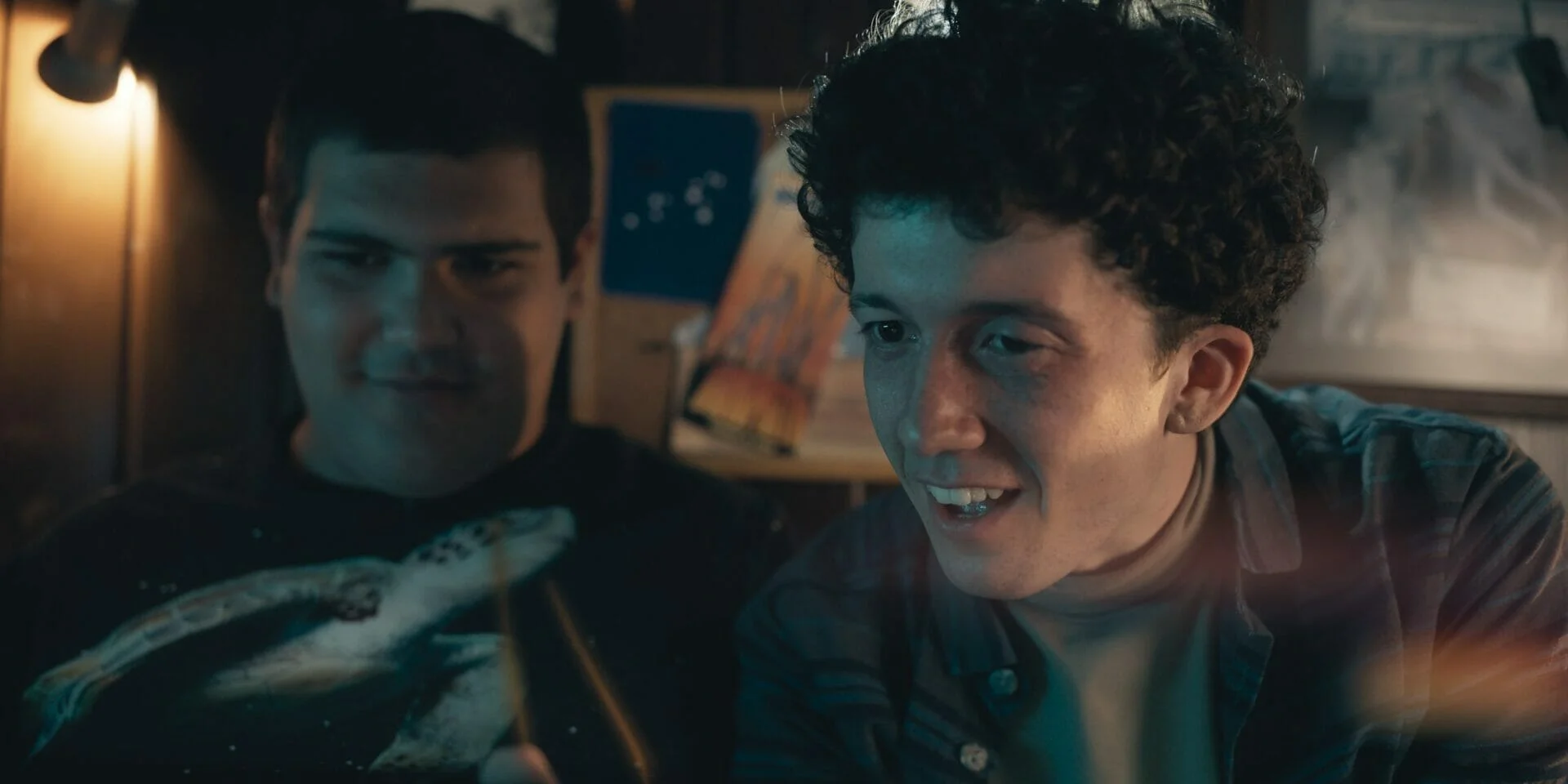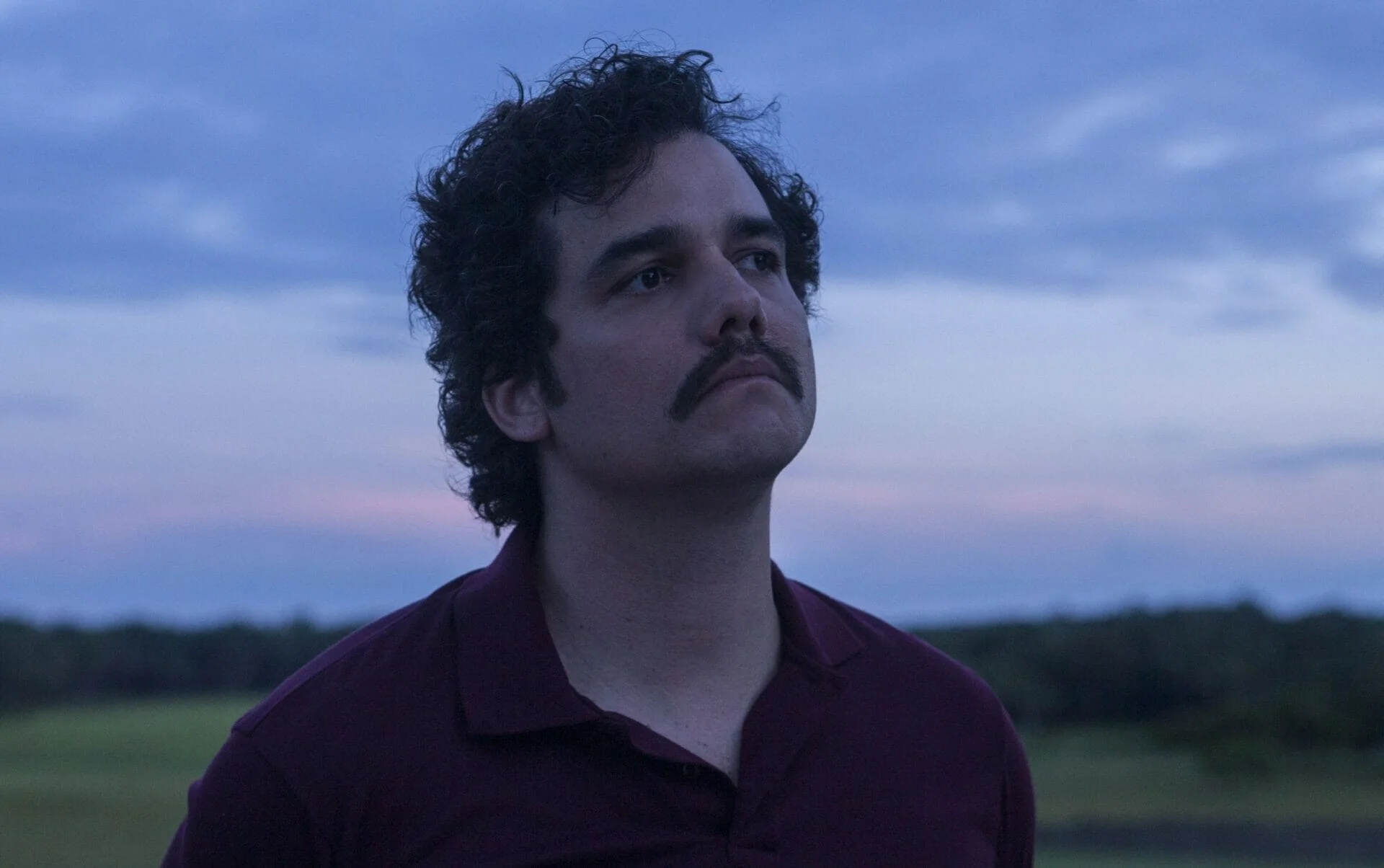
Narcos | A contemporary epic of drug warfare
Director
Year
Seasons
Runtime
Genre
Whether for the opening theme Tuyo or Wagner Moura‘s vivid performance, Narcos left a deep impression on mass culture. The TV show retracing the fight between the Medellin cartel and the American Drug Enforcement Administration (DEA) represents one of Netflix‘s earliest attempts to upscale. It also marks a revival of the always enticing and timely theme of drug trafficking, which made the fortunes of Breaking Bad, with a more documentary approach. The production rests on months of interviews with historical figures, analysis of phone intercepts and selection of archive footage. As to the fictional side, the unprecedented human insight into Pablo Escobar’s life fosters the consistency of the script. Out of these elements, Narcos has turned drug dealing dynamics into an articulated, compelling narrative universe.
Drug traffickers in power
Colombia, late 1970s. Pablo Escobar (Wagner Moura), a local smuggler, ventures into cocaine production and dealing. Through capillary organization and police bribery, he manages to take the volumes and reach of drug trafficking to unprecedented levels. By the time an escalation in violence due to drug consumption ravages Miami, Escobar is the richest criminal on earth. His influence goes all the way to government halls and jeopardizes the country’s stability. That’s when the USA decides to turn the tide. DEA agent Stephen Murphy (Boyd Holbrook) moves to Bogotà, where he joins the local authorities in the war on drugs. Since then, he and his colleague, Javier Peña (Pedro Pascal), are dragged into a bloody and unforgiving civil war, able to turn them as both professionals and men.
Pablo Escobar: portrait of a man
Together with Al Capone and Totò Riina, the boss of Medellin’s cartel is one of the most notorious criminals worldwide. From Licence to Kill (1989), starring Timothy Dalton as agent 007, to Loving Pablo (2017), featuring Javier Bardem, Pablo Escobar is an established character in the movie industry, a pop-culture staple and a frequent reference in rap music. Indeed, Narcos spread his story to an unprecedented scale, providing its own original interpretation. The series attempts to do away with stereotypes and preconceptions, exploring Escobar’s human side.
As such, his figure appears layered and defined by constant contradictions. Despite being the instigator of thousands of murders, he is a devoted family man, a benefactor and a champion of the people. He repudiates Colombian institutions and establishment, yet he is an ardent patriot, even running for elections. He doesn’t define himself as rich, but rather as a “poor person with money”. Moura’s interpretation gives rise to a deep and intimate characterization, able to make the audience empathize with the drug trafficker’s tragic narrative arc.
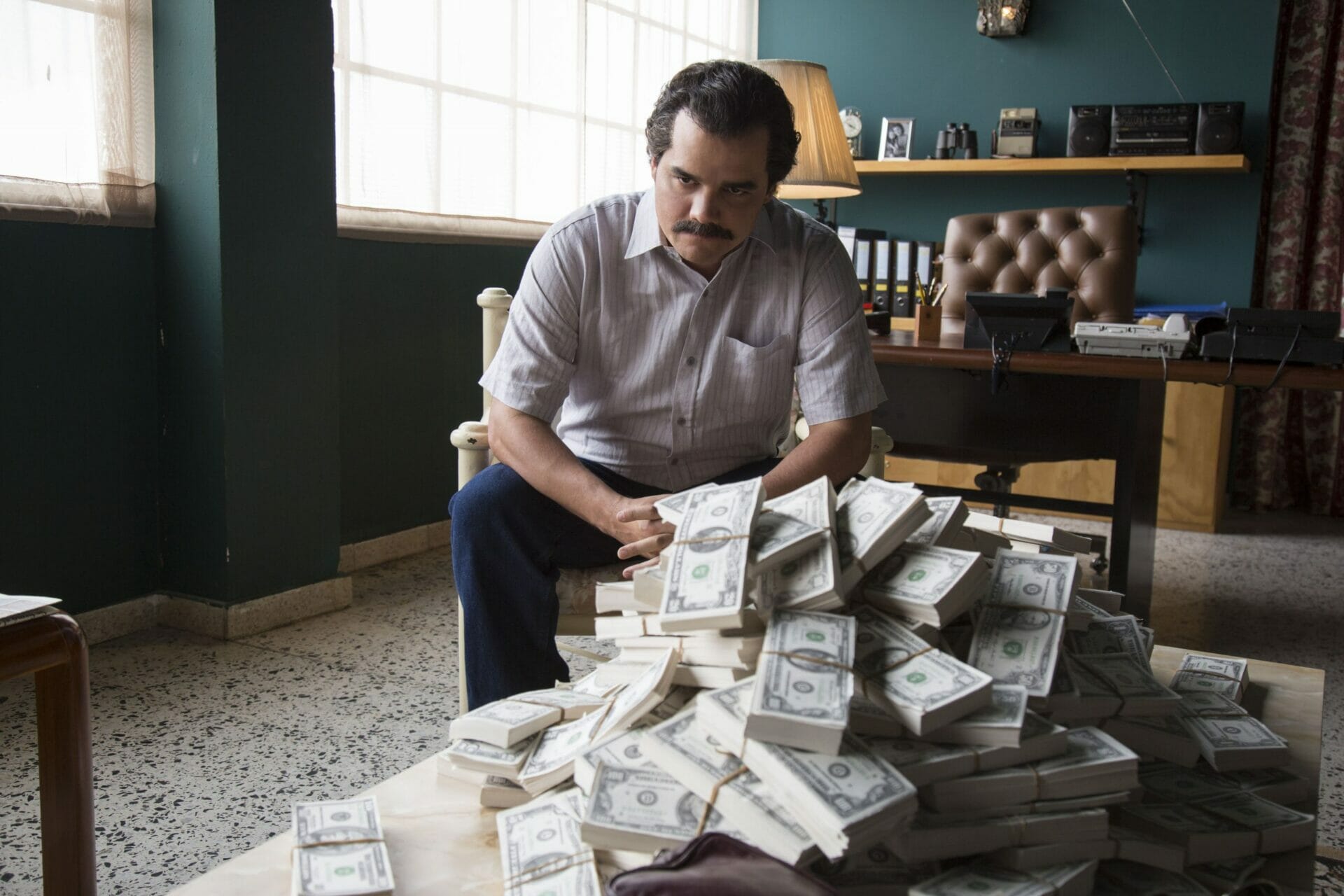
Between fiction and reality: a documentary style
Magical realism is defined as what happens when a highly detailed, realistic setting is invaded by something too strange to believe. There is a reason magical realism was born in Colombia.
Season 1, Episode 1
Right from its outset, by evoking Gabriel García Márquez‘s authoritative figure in an enigmatic caption, the TV show emphasizes Colombia and realism as two of its pillars. Most dialogues are in Spanish with subtitles, a choice that could have been a gamble. The effect, though, is immersive and engaging, aided by filming in the places where the events took place. Including the very house in Medellin where Escobar’s parable came to an end. From a narrative point of view, the series develops as a montage of both historical, archive footage with fictitious reconstructions, commented by Agent Murphy’s voice-over.
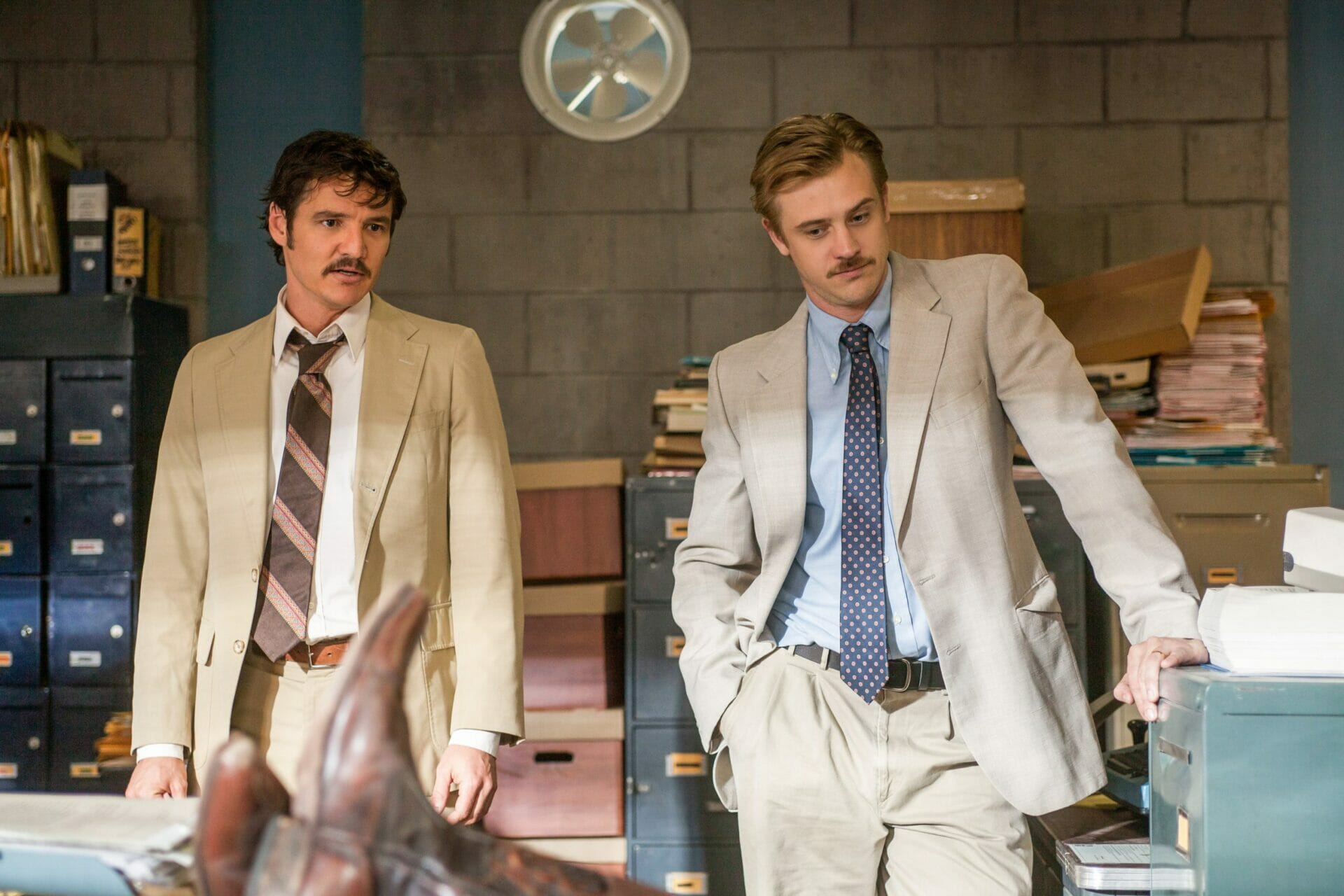
This production and direction approach results in a distinctive storytelling style and reveals the effort of adherence to historical facts. It is enough to mention that Moura, a native Portuguese speaker, attended a Spanish school for months and piled on nearly 20 kg to best play Escobar. Likewise, Holbrook and Pascal had continuous exchanges with the real Agent Murphy and Peña, who collaborated on the series as consultants.
“Plata o plomo”: the harsh law of Narcos
Narcos tells the story of the fight against the Colombian cartel without veils or mitigations of sorts. A spiral of violence, where money, power and politics are intertwined and the boundaries between good and bad fade. Despite the American-centric point of view, which gave rise to several criticisms, the series indicts the US’ involvement, uncovering the political and economic interests behind drug warfare. Indeed, DEA agents themselves are led by no moral principle or ethical code. As much as the criminals they oppose, they make and break alliances according to convenience, get their hands bloody, and fight their enemies by non-legal means.
To kill a monster, sometimes you have to get in bed with other monsters.
Javier Peña (Pedro Pascal) – Season 3, Episode 1
In this light, the reference to magical realism becomes clear. Power and money are the driving forces moving DEA, drug cartels, military units and terrorist cells around a fluid chessboard, generating inhuman deception and corruption. A surreal scenario that spectators find hard to believe, even though they understand the ruthless logic behind it.
An anthological orientation
The fortunes of Narcos seemed to be inextricably linked to Pablo Escobar and Colombia. Still, in 2017 Netflix proved that drug trafficking is a narrative strand that knows no bounds. The third season pivots around the fight against Cali’s cartel, after the debacle of Medellin’s organized crime.
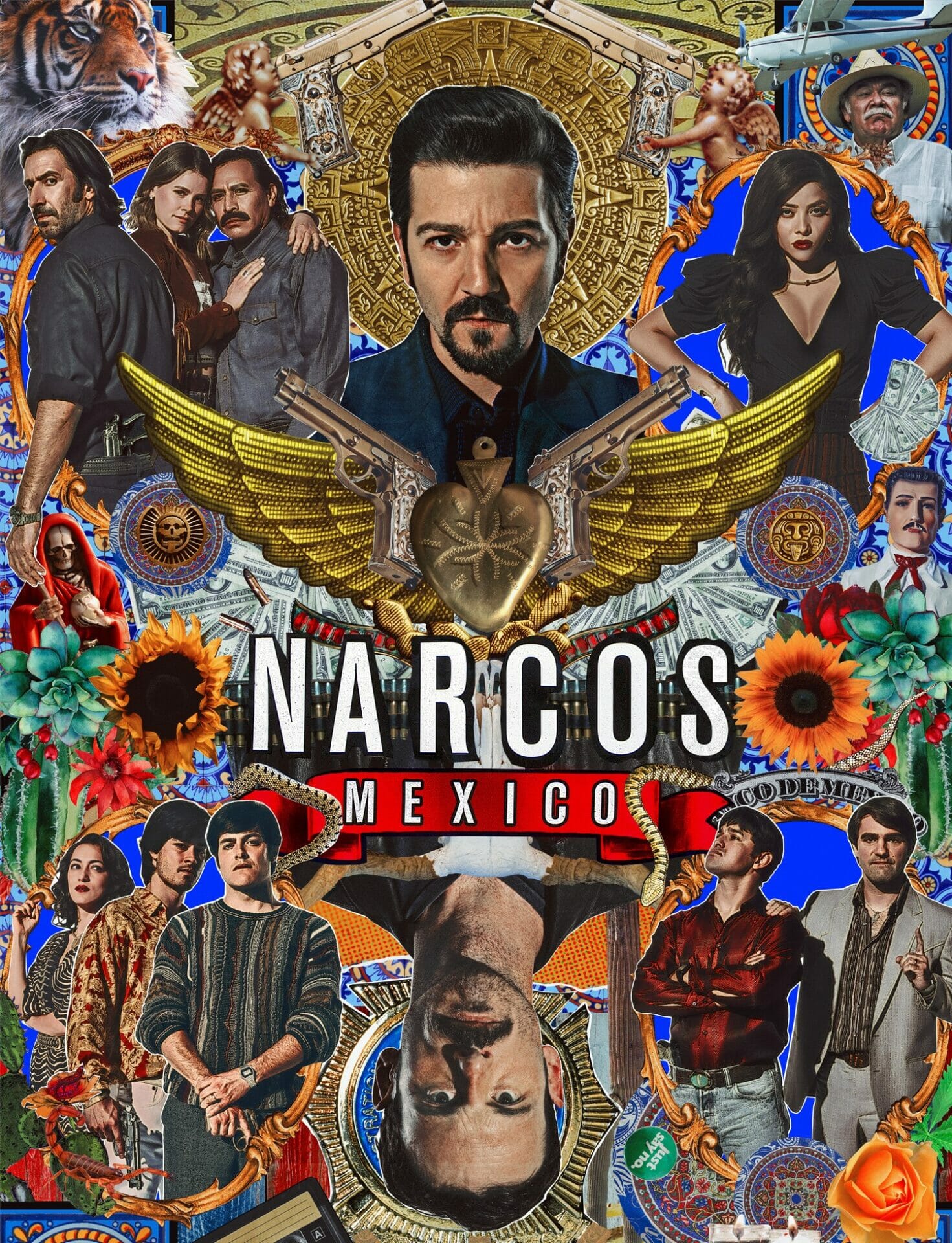
In 2018, the TV show’s horizons opened even wider. Narcos: Mexico unveiled a brand-new beginning, focusing on the country which is the current epicenter of global cocaine trafficking. The TV show keeps the defining features of the franchise and, at the same time, is able to innovate its language. Voice-overs by the external narrator are thinned out to favor a more organic and immediate screenplay. In addition, drug cartels and related characters multiply, creating several interwoven storylines that contribute to a choral narration. From press freedom to femicide, the effects of the war on drug are told from new, complementary perspectives. Also, a renewed social intent to raise awareness of the responsibilities of drug-consuming countries emerges.
America is the largest market for illegal drugs in the world. Though, we focus continually on fighting the supply, without looking at the demand, which is the only way we have a chance.
Eric Newman, Narcos interview with Anupama Chopra, 2018
Tag
Buy a ☕ for Hypercritic





